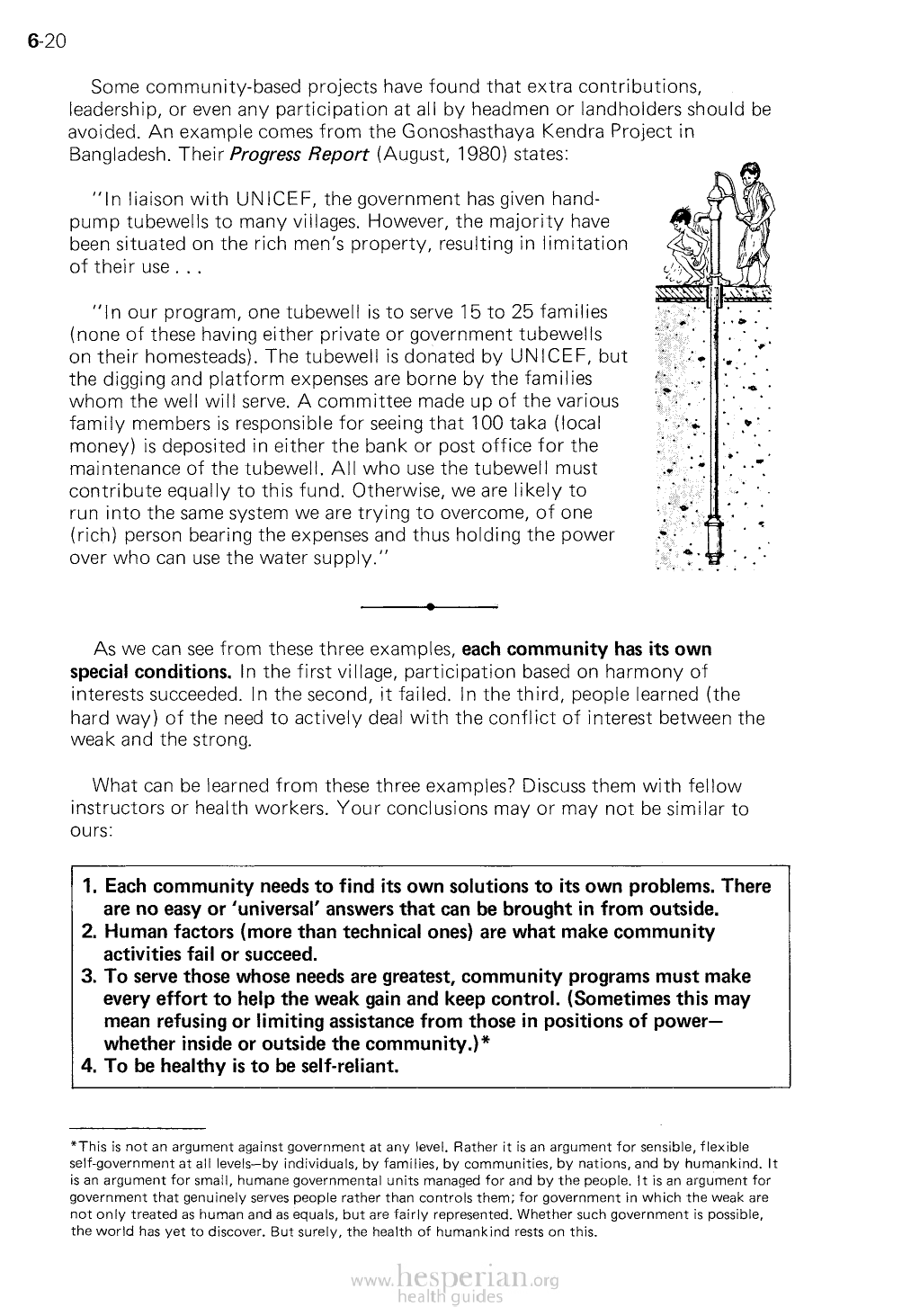
6-20
Some community-based projects have found that extra contributions,
leadership, or even any participation at all by headmen or landholders should be
avoided. An example comes from the Gonoshasthaya Kendra Project in
Bangladesh. Their Progress Report (August, 1980) states:
“In liaison with UNICEF, the government has given hand-
pump tubewells to many villages. However, the majority have
been situated on the rich men’s property, resulting in limitation
of their use . . .
“In our program, one tubewell is to serve 15 to 25 families
(none of these having either private or government tubewells
on their homesteads). The tubewell is donated by UNICEF, but
the digging and platform expenses are borne by the families
whom the well will serve. A committee made up of the various
family members is responsible for seeing that 100 taka (local
money) is deposited in either the bank or post office for the
maintenance of the tubewell. All who use the tubewell must
contribute equally to this fund. Otherwise, we are likely to run
into the same system we are trying to overcome, of one (rich)
person bearing the expenses and thus holding the power over
who can use the water supply.”
•
As we can see from these three examples, each community has its own
special conditions. In the first village, participation based on harmony of
interests succeeded. In the second, it failed. In the third, people learned (the
hard way) of the need to actively deal with the conflict of interest between the
weak and the strong.
What can be learned from these three examples? Discuss them with fellow
instructors or health workers. Your conclusions may or may not be similar to
ours:
1. Each community needs to find its own solutions to its own problems. There
are no easy or ‘universal’ answers that can be brought in from outside.
2. Human factors (more than technical ones) are what make community
activities fail or succeed.
3. To serve those whose needs are greatest, community programs must make
every effort to help the weak gain and keep control. (Sometimes this may
mean refusing or limiting assistance from those in positions of power—
whether inside or outside the community.)*
4. To be healthy is to be self-reliant.
*This is not an argument against government at any level. Rather it is an argument for sensible, flexible
self-government at all levels—by individuals, by families, by communities, by nations, and by humankind.
It is an argument for small, humane governmental units managed for and by the people. It is an argument
for government that genuinely serves people rather than controls them; for government in which the
weak are not only treated as human and as equals, but are fairly represented. Whether such government
is possible, the world has yet to discover. But surely, the health of humankind rests on this.